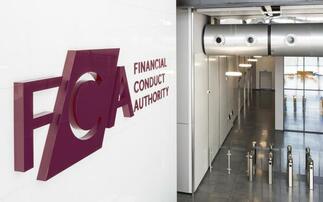Fund managers are seeing opportunities in UK government bonds if Britain decides to leave the European Union later this month, with many expecting gilt prices to rally further in the event of a Brexit vote, following their strongest start to the year since 2001.
According to Thomson Reuters, the FTSE Gilts All-Stocks Total Return index was up 5.5% in 2016, making UK government bonds one of the best performing asset classes year-to-date. The yield on 10-year gilts fell to a near-record low of 1.39% last Monday, down from 1.96% at the start of the year.
Investors have been flocking to gilts against a backdrop of growing concerns about the strength of the UK economic recovery and the impact of the EU referendum, which came to a head last week when Bank of England (BoE) governor Mark Carney warned a Brexit vote could result in a year-long recession.
This has led to a further push-back of expectations for interest rate rises, with the BoE now sounding out bank chiefs about the impact of a possible rate cut should the UK vote to leave the EU in June's referendum.
David Coombs, head of multi-asset investments at Rathbones, said a Brexit vote could present an "incredible" opportunity to add government bonds to his portfolios.
"If the UK was to leave the European Union, the BoE would have to act quickly to attract foreign investment back to the country. To do this, it would have to reduce taxes at the same time as a rise in its cost of debt because investors are not buying gilts. That would not be a good scenario.
"The BoE needs gilt yields to stay low, and to do this it will have to buy them to suppress them. This will make the gilt market very volatile, with yields moving on an intraday basis, which means there could be some incredible opportunities to add gilts to my portfolio in the first few weeks if we leave."
The BoE needs gilt yields to stay low, and to do this it will have to buy them to suppress them. This will make the gilt market very volatile.
As a result, Coombs has increased cash weightings in his £76.8m Total Return and £99.5m Strategic Growth portfolios to "near-record highs" of 16% and 8% respectively as he awaits the referendum result.
Tyrie writes to Carney on gilt market liquidity concerns
Despite bookmakers currently indicating an 85% chance the UK will stay in the EU, Mike Amey, manager of the £157m PIMCO UK Low Duration fund, said the market is still pricing in a 25% probability of a 25bps rate cut this year.
He has maintained some exposure to UK duration in order to "mitigate the downside risk" of a potential Brexit, as he believes the BoE will cut interest rates from their current level of 0.5% to zero in the event of a 'leave' vote.
"In our portfolios, we have been looking to combine positions that may benefit if the UK remains in the EU with those that will mitigate downside risk if it votes to leave, which includes maintaining exposure to UK duration," he said.
"With inflation low, we see a very small probability of a rate hike in the next 12 months regardless of the outcome in June, and in the event the UK votes to leave the EU, we think it likely the Bank of England would cut rates, potentially boosting gilt prices. We are currently seeing good risk-reward characteristics in 5- and 10-year gilts."
Dickie Hodges, manager of the $100m Nomura Global Dynamic Bond fund, said there remain buying opportunities in gilts as the BoE is likely to restart quantitative easing (QE) measures in the event of a Brexit.
The UK economy is not in the stellar place we are led to believe and if there is a 'leave' vote, the Bank of England will re-start QE.
"The UK economy is not in the stellar place we are led to believe and if there is a 'leave' vote, the Bank of England will restart QE," he said.
"They never reversed it, they just have not added to it. They will need to do this to create financial stability and could even cut rates. That would be a positive for UK gilt yields as they will fall further."
However, with foreign investors currently holding 25% of outstanding UK gilts, Hodges warned there is a risk prices could fall as overseas investors sell their holdings in the event of a Brexit.
Brexit fears weigh as overseas perception of UK plummets
Similarly, John Bilton, head of global multi-asset strategy at J.P. Morgan Asset Management, said a Brexit risks a rapid sale of gilts held by foreign investors, as questions are raised over the stability of an independent UK.
He said: "To fund its deficit, the UK is increasingly reliant on non-domestic buyers of gilts, who have been large purchasers since the financial crisis. Should these investors rush to exit their gilt positions after a vote to leave, yields could rise."
However, Bilton added domestic investors are likely to rotate from stocks to bonds in the event of a Brexit, offsetting the effects of foreign outflows.
Richard Champion, deputy CIO at Canaccord Genuity Wealth Management, said: "We expect the remain camp to win, whilst acknowledging the vote will be close. If we do vote to leave there will be conflicting price pressures on Gilts.
"Sterling would likely fall, which increases inflationary pressure on the economy, and this normally means pressure to increase interest rates and puts pressure on Gilts prices. For example, note the UK's inferior long-term inflation track record relative to our major trading partners.
"However, business confidence is likely to fall, which decreases activity and with it reduces inflationary pressure. The BoE may cut rates or add to QE to compensate, which supports Gilts prices.
"Ultimately the performance of Gilts from here will depend on UK inflation - and Brexit will likely increase import costs. I would not be a buyer of Gilts based only on Brexit. With the yield on the UK ten year Gilt at 1.4%, there is little value in the area."















